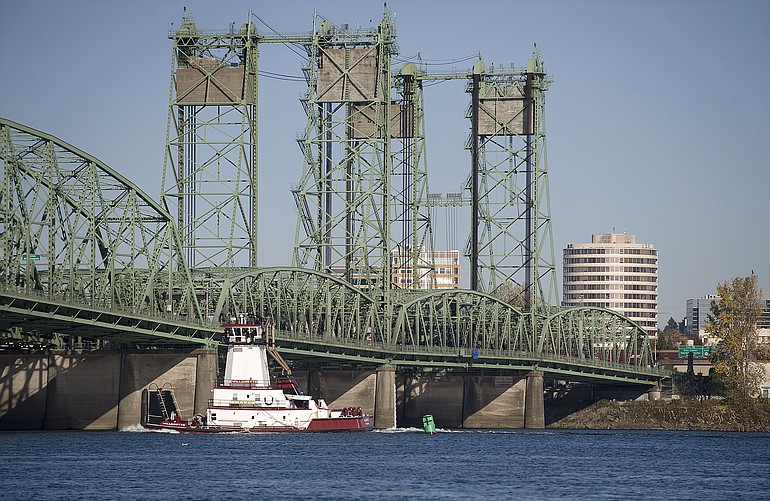Construction is at least two years away, but the Columbia River Crossing has run up a tab of $108.5 million in planning costs as of the end of September.
Those costs are escalating as planners shift toward the home stretch of a multibillion-dollar project more than a decade in the works.
Underscoring the complicated and costly nature of the endeavor, a new expert review panel is due to convene for the first time next week.
Crossing planners haven’t yet estimated the cost of this new 16-member panel, which meets at 8 a.m. Wednesday at the Washington Department of Transportation’s regional office in Vancouver. The panel will focus on the design of the new Interstate 5 bridge across the Columbia.
Like everything else with this project, it won’t be cheap.
Spending has escalated as planners work toward a final environmental impact statement and a formal record of decision. Officials had hoped to meet those milestones by the end of this year, but they’ve now been pushed back to the middle of 2011 as engineers incorporate design changes on Hayden Island sought by Portland elected leaders.
Planners and consultants burned through $10.7 million between July and the end of September — $3.5 million per month.
Crossing officials say the money spent to date is in line with what they expected by this point in the process.
Currently estimated to cost $3.6 billion, the proposal would replace the existing twin three-lane drawbridges across the Columbia with 10 lanes, extend Portland’s light-rail transit system to Vancouver and improve five miles of I-5 between state Highway 500 and Marine Drive in Portland. The project is tapping $134 million in state and federal funding set aside to plan for the project.
“It is a lot of money,” said Mandy Putney, a CRC spokeswoman. “I think it has been very efficiently and effectively spent, so you can deliver a project of this complexity.”
The newest review panel will tackle the most complex part of the overall project: The river crossing itself.
The river crossing will employ an open-web stacked design that’s never been built for a bridge of this size anywhere in the world. The stack includes automobile decks on top, with a pedestrian and bicycle path on the lower deck of one bridge and light rail running on the lower deck of the other span. The open web enables pedestrians and riders to peer out across the river rather than being confined inside a segmental box.
Officials last estimated the cost of the bridge at between $600 million and $818 million, but the review will determine whether that’s realistic.
Ironically, the latest review comes at the recommendation of yet another expert review panel. Govs. Chris Gregoire and Ted Kulongoski convened that panel after local elected leaders — worried about escalating costs — complained about the project’s design, function and financing.
While public debate continues to swirl over light rail, highway capacity and bridge tolls, the meter continues to run at the CRC office occupying a floor and a half of space in a downtown Vancouver office tower.
A line-by-line summary of project costs since 2004 reveal an eclectic mix of consultants and agencies.
Several American Indian tribes were paid to consult on tribal resources affected. The Atlanta Regional Commission got $1,008 to participate on a panel related to the project’s impact on greenhouse gases. The communications firm run by Patricia McCaig, now managing Oregon gubernatorial candidate John Kitzhaber’s campaign, got $130,860. Portland finance consultant Steve Siegel has collected $848,639 since 2004.
The firm operated by San Francisco Bay Area consultant David Parisi got $1.4 million for work related to traffic analysis.
David Evans and Associates, a Portland-based engineering firm, is the CRC’s prime contractor and the largest single recipient with $26.8 million.
“We work in almost all of the tasks,” said Lyn Wylder, the CRC’s consultant project manager who works for Evans & Associates.
Local municipalities and federal agencies have also been compensated for work related to the crossing project.
The National Park Service has received $334,000 for archeology work around the Fort Vancouver National Site. The city of Vancouver was compensated $776,000 for staff time, while the city of Portland collected $315,000.
Erik Robinson: 360-735-4551, or erik.robinson@columbian.com.



